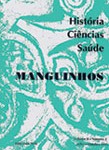A Brazilian vaccine that stimulates the immune system to fight against Trypanosoma cruzi – parasite that causes Chagas disease – was successfully tested in experiments with mice. According to findings published in the journal PLoS Pathogens, in late January, the vaccine increased the survival rate of infected animals from zero to 80% and reduced symptoms such as cardiac arrhythmias.
In the experiment described in PLoS Pathogens, lab mice were observed for 250 days after being infected with Chagas. While all the animals that were not vaccinated died, 80% of those immunized survived. Among inoculated mice, 33% developed cardiac arrhythmia, compared with 100% of those that did not take the vaccine. The scientists will need to do further research to develop a safe formula for humans before starting clinical trials.
For the last 20 years, Mauricio Martins Rodrigues, professor at the Federal University of São Paulo (UNIFESP), coordinates the research for the development of the vaccine with support from FAPESP.
“More than 10 million people in Latin America are infected with Chagas disease already in the chronic phase and conventional treatment often does not work. The vaccine would reduce symptoms, mortality rates and improve life standards for patients,” said Rodrigues.
Among of the worse developments of Chagas disease – a potentially fatal disease – are cardiac disorders, such as the enlargement of the heart ventricles (condition that affects about 30% of patients and often leads to heart failure), esophageal dilatation or the enlargement of the colon (which affects up to 10% of infected and can damage the peristalsis and the sphincter.
Although drugs such as benznidazole are reasonably effective against the parasite, they can only slow the progress of the disease when it develops into the chronic phase, which happens in 30% of cases. In the absence of a specific treatment, physicians opt for drugs used to combat heart diseases or digestive problems to relieve Chagas symptoms. However such drugs can only treat symptoms but do not tackle the disease.
The vaccine developed at UNIFESP can also be used to promote a prophylactic immunization against the Trypanosoma cruzi, but according to Rodrigues, the impact on public health would be better if it can be used therapeutically.
“To use it prophylactically we would need to immunize thousands of people, and the countries with high transmission rates, such as Bolivia, Venezuela and Peru, have no resources for this type of campaign,” he said.
In Brazil, however, the T. Cruzi has been virtually eradicated, occurring only in isolated cases and usually through food contaminated by the “Barber bug”, the vector of the disease.
Read more about Chagas disease in HCS-Manguinhos, in either Portuguese, Spanish or English:
Zabala, Juan Pablo. Historia de la enfermedad de Chagas en Argentina: evolución conceptual, institucional y política. Hist. cienc. saude-Manguinhos, Jul 2009, vol.16, suppl.1, p.57-74. ISSN 0104-5970
Gachelin, Gabriel and Opinel, Annick. The reception by French physicians of Chagas’ discovery of Trypanosoma cruziand American trypanosomiasis (1909-1925). Hist. cienc. saude-Manguinhos
Lima, Nísia Trindade and Botelho, André. Malaria as a disease and as a cultural perspective in Carlos Chagas’ and Mário de Andrade’s travels to the Amazon. Hist. cienc. saude-Manguinhos [online]. 2013, vol.20, n.3, pp. 745-763. ISSN 0104-5970.










